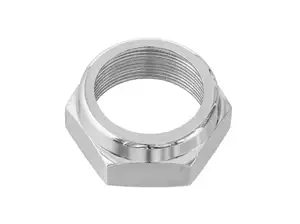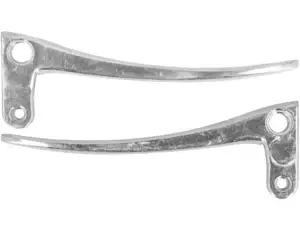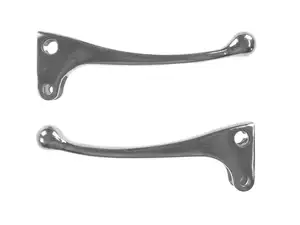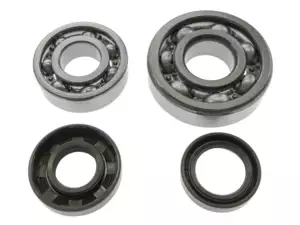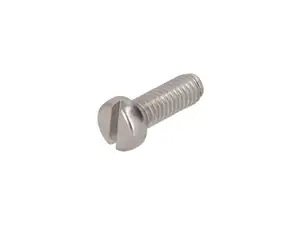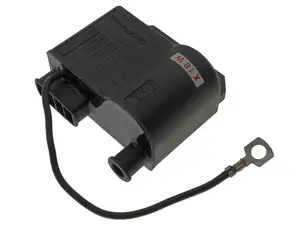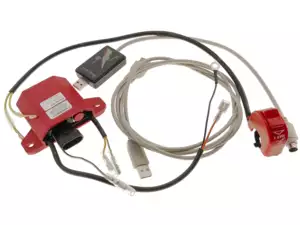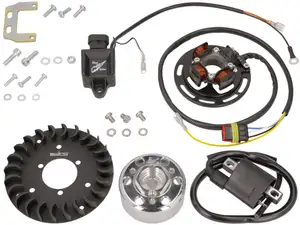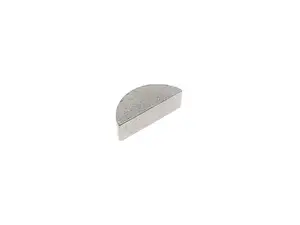
PONY
Pony mopeds - Swiss cultural heritage on two wheels

The mopeds from Feuerthalen with the emblem of the lively little horse have been part of the typical Swiss street scene since the 1960s. Even if the two-wheelers have become somewhat rarer in recent years, Pony mopeds are still being built today, while Puch, Piaggio and other renowned manufacturers have long since ceased production. Let us take a closer look at this somewhat different and unusual manufacturer.
| Seat |  |
| Status | |
| Foundation | 1961 |

Swissness at its best
Swiss knives, Swiss watches and Swiss tools are synonymous worldwide with unique quality, maximum precision and indestructible durability. The last point in particular also applies to the Swiss moped manufacturer Amsler & Co. From 1961 to the present day, mopeds have been built at the company headquarters in Feuerthalen using genuine craftsmanship. A specific calmness and impressive continuity are also reflected in the model range. The mopeds sold under the Pony Motos brand have only been available in two model variants since the start of production: the Pony Cross moped and the Pony GTX moped. These models have been built in almost unchanged form since the start of production. But for all its tranquillity, the moped manufacturer Amsler & Co has a long and rather eventful company history, which tells a lot about iron willpower, Swiss engineering skills and the little guy standing up to the big guy.
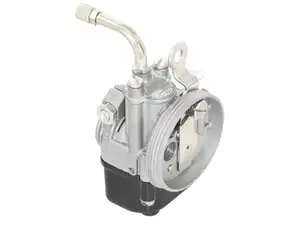
Dell'Orto 12/10 SHA carburetor (replacement) | Pony Beta 521
Manufacturer: Dell'Orto · Component group Carburetor: Carburetor complete · Carburetor type: SHA (Piaggio) · Nominal diameter: 12 mm · Ø Internal connection: 16 mm · Ø without reducing sleeve: 19 mm · Ø Inside entrance: 10 mm · Ø Output inside: 12 mm · Ø Air filter connection: 50.6 mm · Ø fuel hose connection: 6 mm · Mixed oil connection: No · Vacuum connection: No · Choke control: Hand choke · Nozzle thread: M5x0.8 (standard thread) · Nozzle size: 37 · Mounting type: Plug connection clamped · Total length: 45 mm · Width: 60 mm · Height: 96 mm · Area of application: Tuning
75,70 EUR
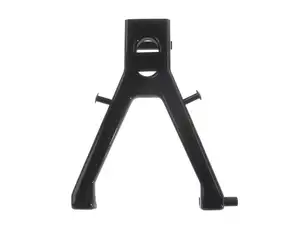
Main stand | Pony GTX / Cross Beta 521 (P8003S)
Manufacturer: Pony · Material: Steel · Surface: varnished · Color: black · Stand base - center mount (A): 215 mm · Total width of stand base (B): 220 mm · Wide receptacle (C): 64 mm · Ø Receptacle (D): 8 mm · Spring nipple distance - center pivot axis (E): 80 mm · Total height: 250 mm · Pony OEM number: P8003S
116,60 EUR
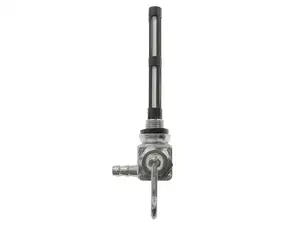
Fuel tap M10x1 mm left outgoing | Cilo / Pony Cross 521 (P8068)
Manufacturer: Made in Italy · Possible lever positions: open / closed / reserve · Material lever: Aluminum · Filter type: Plastic net · Ø fuel hose connection: 6 mm · Installation direction: vertical / vertical · Outlet direction: left · Spare tube shape: straight · Mounting type: screw in (thread) · Thread type: MF10x1 (fine pitch thread) · Reserve level: 60 mm
17,40 EUR
Page 1 of 71
Wayward company foundation
The former company founder Carl Theodor Amsler was born in 1825 as the son of a doctor in the Swiss town of Schinznach. After finishing school, the young Carl Theodor emigrated to America and founded his first company there, which manufactured optical and mathematical instruments. His company is successful and expands, and it seems as if Carl Theodor Amsler is experiencing the proverbial American Dream. But fate had a different plan in store for him and struck mercilessly. His factory in Philadelphia is completely destroyed in a devastating fire, Carl Theodor Amsler loses almost his entire fortune trying to rebuild it and returns to his old home almost penniless. But even though his first factory was destroyed in the flames, his entrepreneurial spirit and proverbial Swiss tenacity remained unbroken.
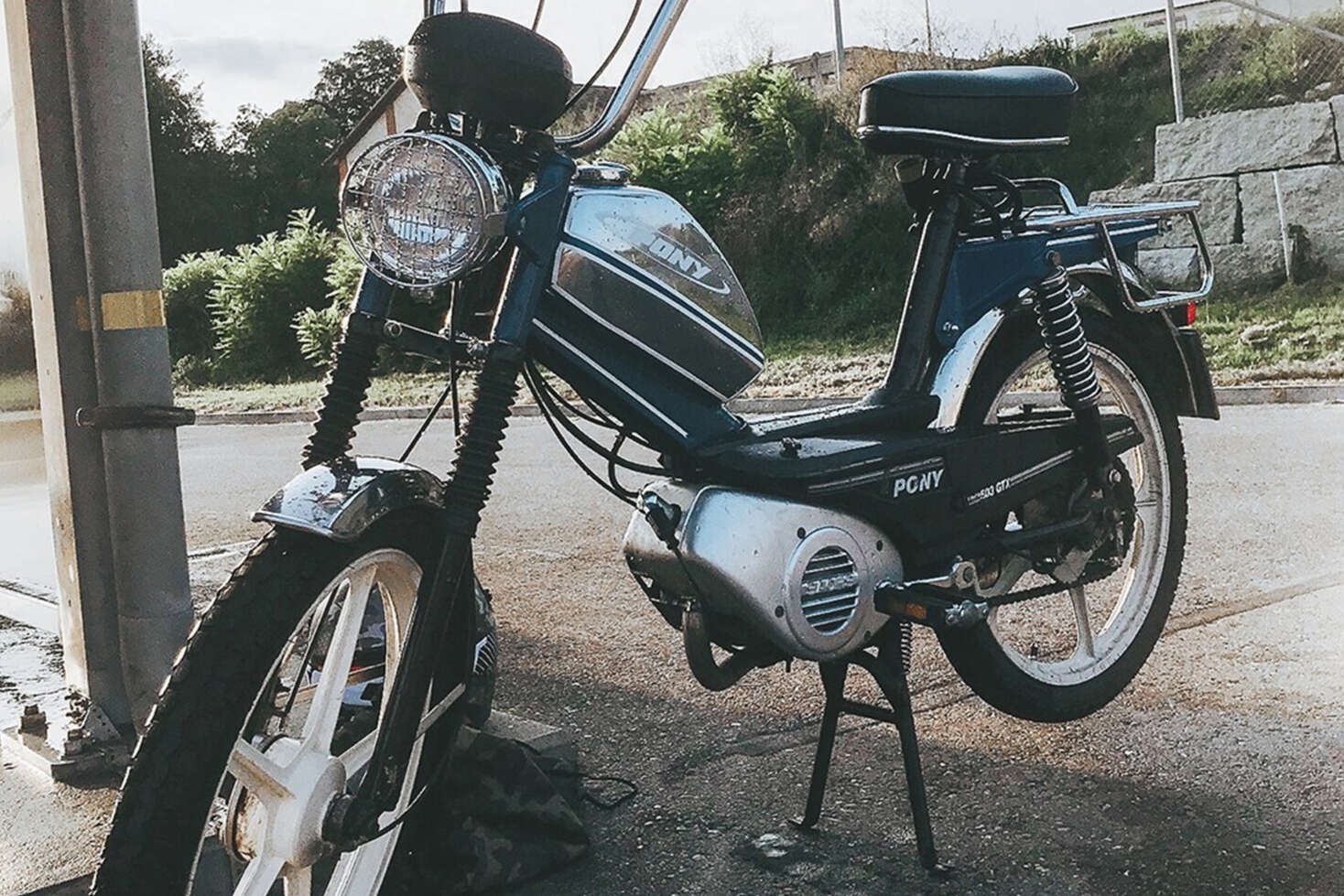
New start and entry into the bicycle business
In 1865, he embarked on a new endeavour and founded a factory for fire extinguishers on the site of today's moped forge in Feuerthalen. Business was good again. Amsler & Co therefore begins to look for new business areas and expands its product range. As a result, Amsler was already travelling on two wheels by 1890, when the company entered the bicycle component business. Around 1900, the first contact was made with a German entrepreneur whose name is certainly recognised by every moped enthusiast: Ernst Sachs. The connection between Sachs and Amsler & Co, which began here, lasted for many years. It was not for nothing that the Pony-Cross mopeds and Pony-GTX mopeds were fitted with Sachs 503 engines at the factory in the 1960s. But more on that later. The company negotiated skilfully in 1903 and secured exclusive distribution for the ‘Torpedo freewheel hub’, a Sachs patent, for Switzerland. This rear wheel hub was a real bestseller and a veritable goldmine for the company from Feuerthalen. As a result of this first co-operation with Sachs, Amsler focused exclusively on the production and sale of bicycle components. However, business success did not always favour the company in the difficult 1930s and 1940s. In the period up to the end of the Second World War, Swiss bicycle manufacturers also had to overcome hard times. However, it is clear from the company's history that consistency, perseverance and tenacity were part of the DNA of the later moped manufacturer. This is how the company survived even these economically difficult decades.
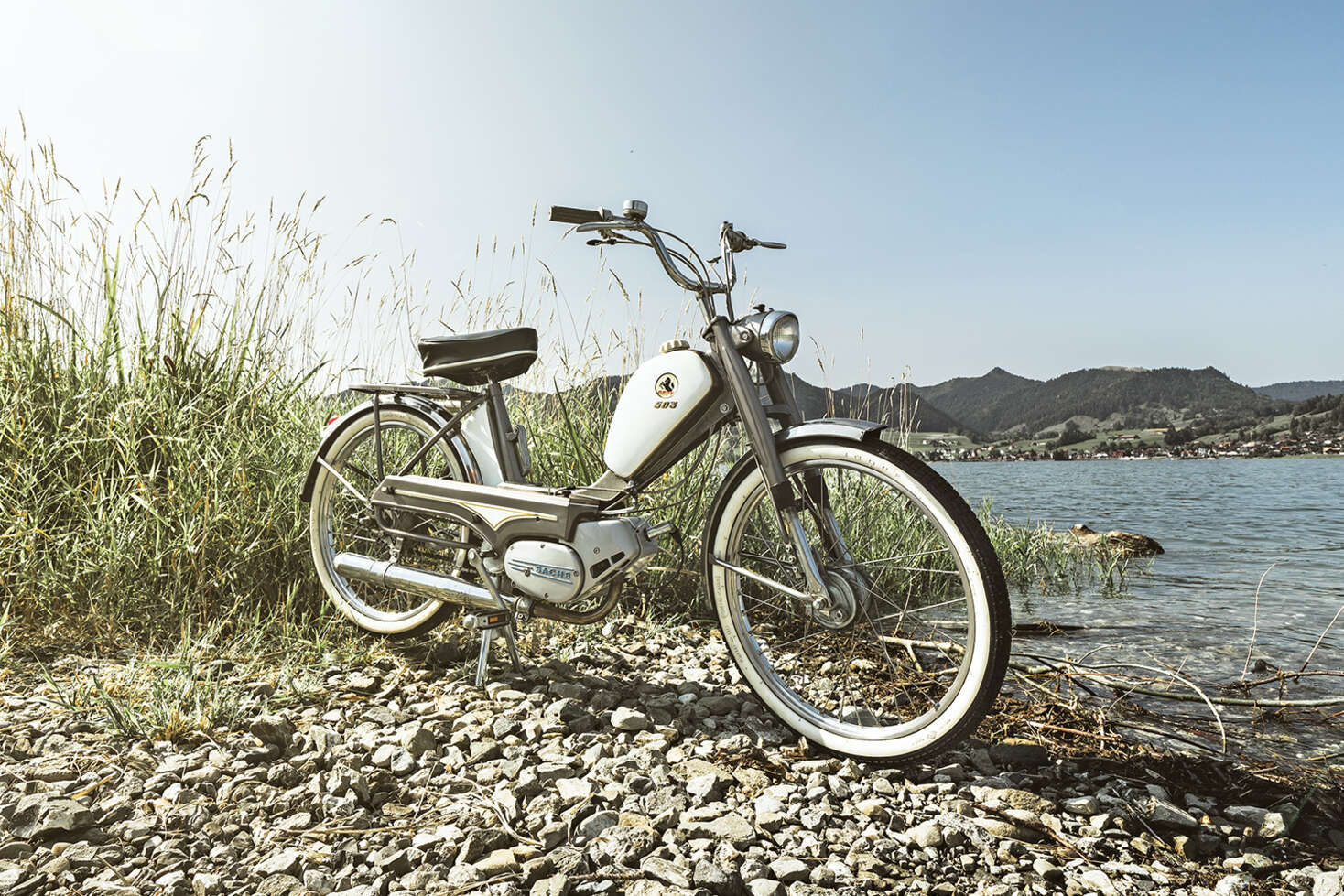
Mopeds are finally being built
From the 1950s onwards, the manufacturer returned to calmer waters and prospered. When the moped was about to start its triumphal march on Swiss roads, the future moped manufacturer reacted with lightning speed. In 1961, as soon as the motorbike class was officially approved in Swiss road traffic law, Feuerthalen was also at the starting line with pony mopeds. This early launch of the Pony mopeds proved to be a decisive advantage over the tough and actually overpowering competition from foreign moped manufacturers such as Piaggio, Puch and Tomos. The Swiss market was highly competitive during the onset of the moped boom in the 1960s, but as the Pony mopeds were there right from the start, a regular clientele quickly formed. The Pony-Cross and Pony-GTX mopeds, which were somewhat more simply equipped than the competitor models, also won over customers with their robustness and favourable price.
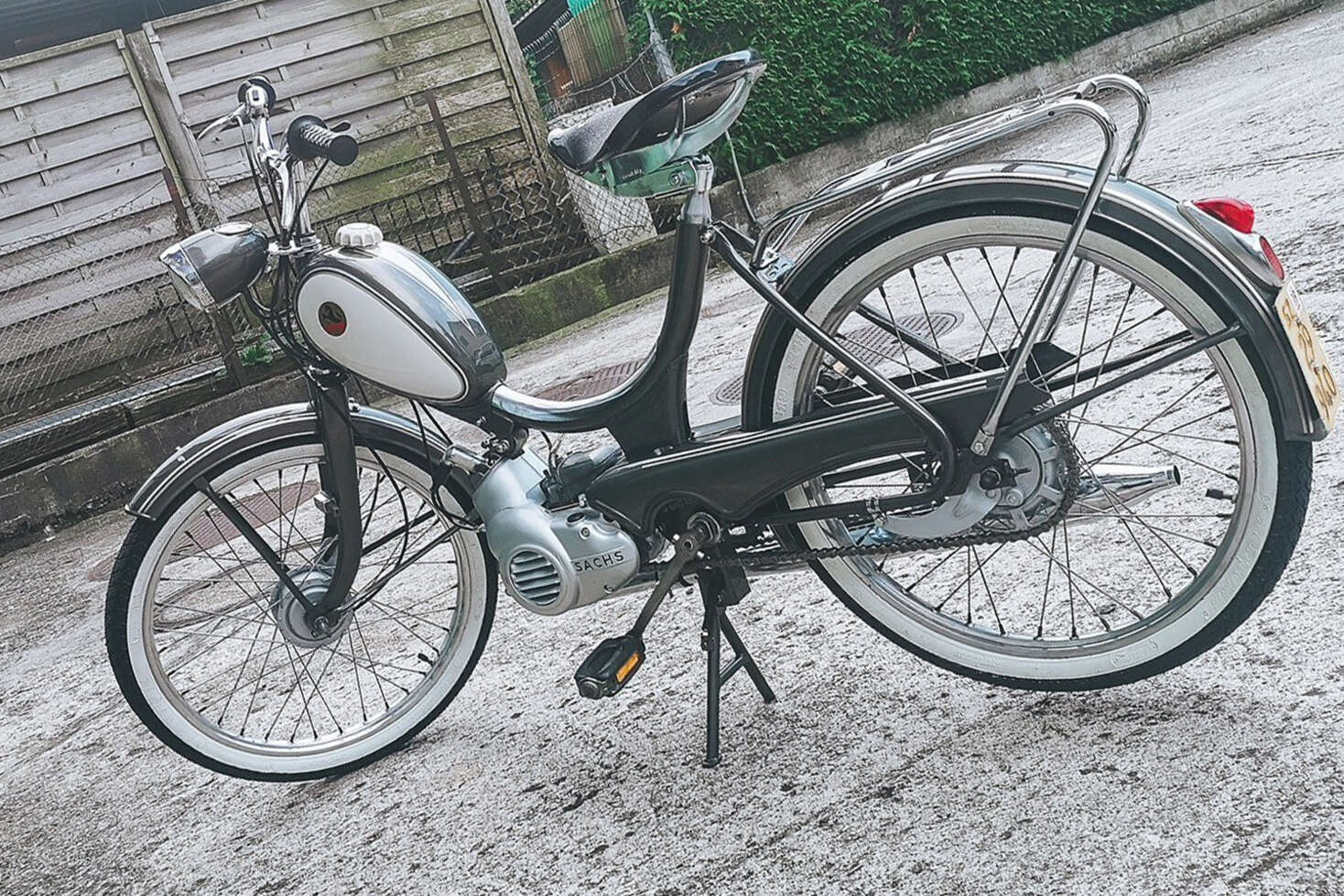
What's under the Pony saddle?
The technical specifications of the two models have only changed marginally over the years; even the first Pony mopeds were powered by a fan-cooled single-cylinder two-stroke engine with 49 cm3 and an output of 1.2 hp or 0.88 kW. Initially, Sachs engines were used for Pony mopeds. Since the end of small engine production in Schweinfurt, the mopeds have been fitted as standard with an engine from the Italian company Betamotor. Then, as now, a Dell'Orto SHA 13.11 carburettor provided the ignitable mixture. Both models have identical engines and differ technically only in a few minor details such as the chain sprocket or tyres. Although the small but powerful steeds are no longer quite as affordable as they were when they were launched in 1961, they are still just as robust, frugal and endearing.
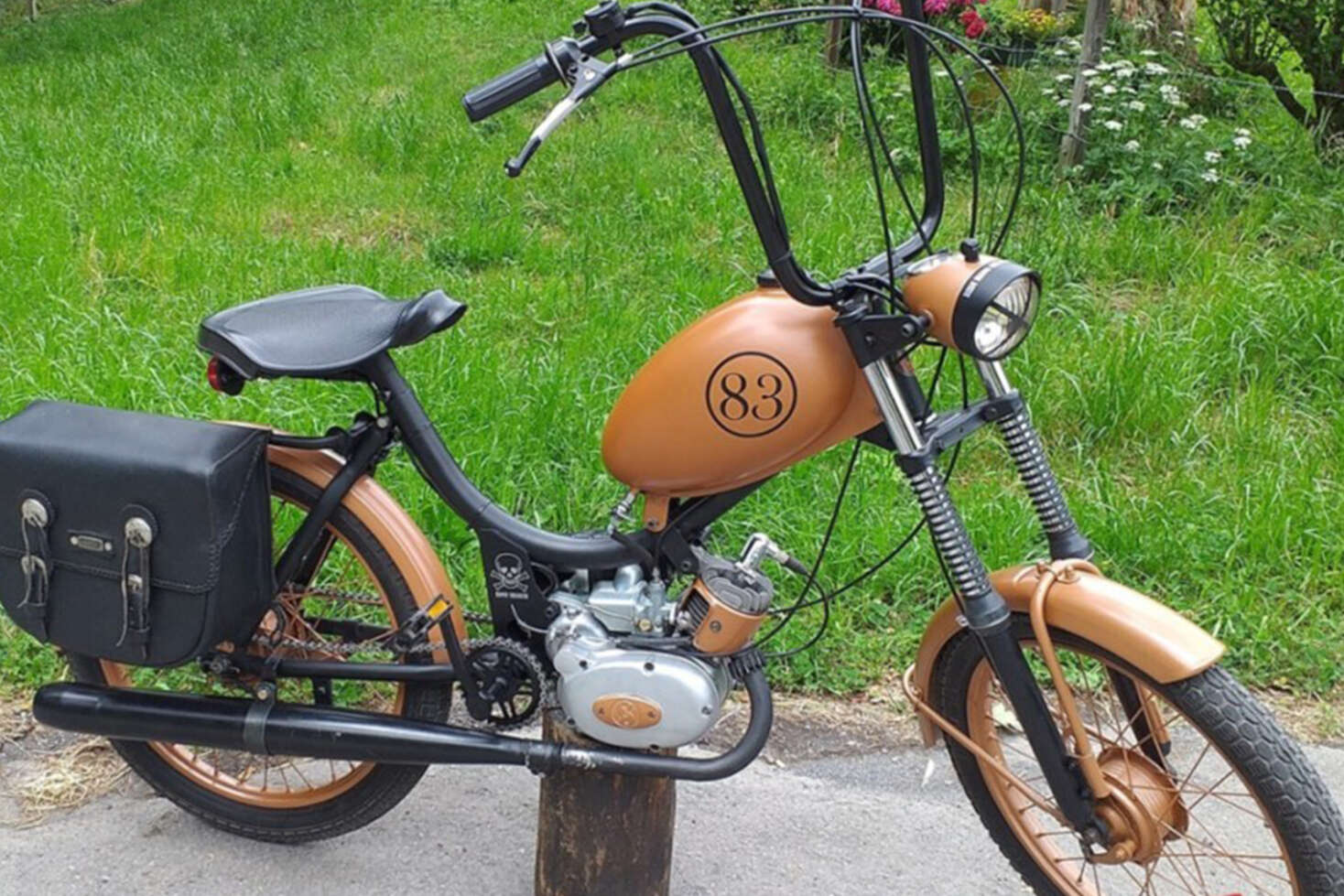
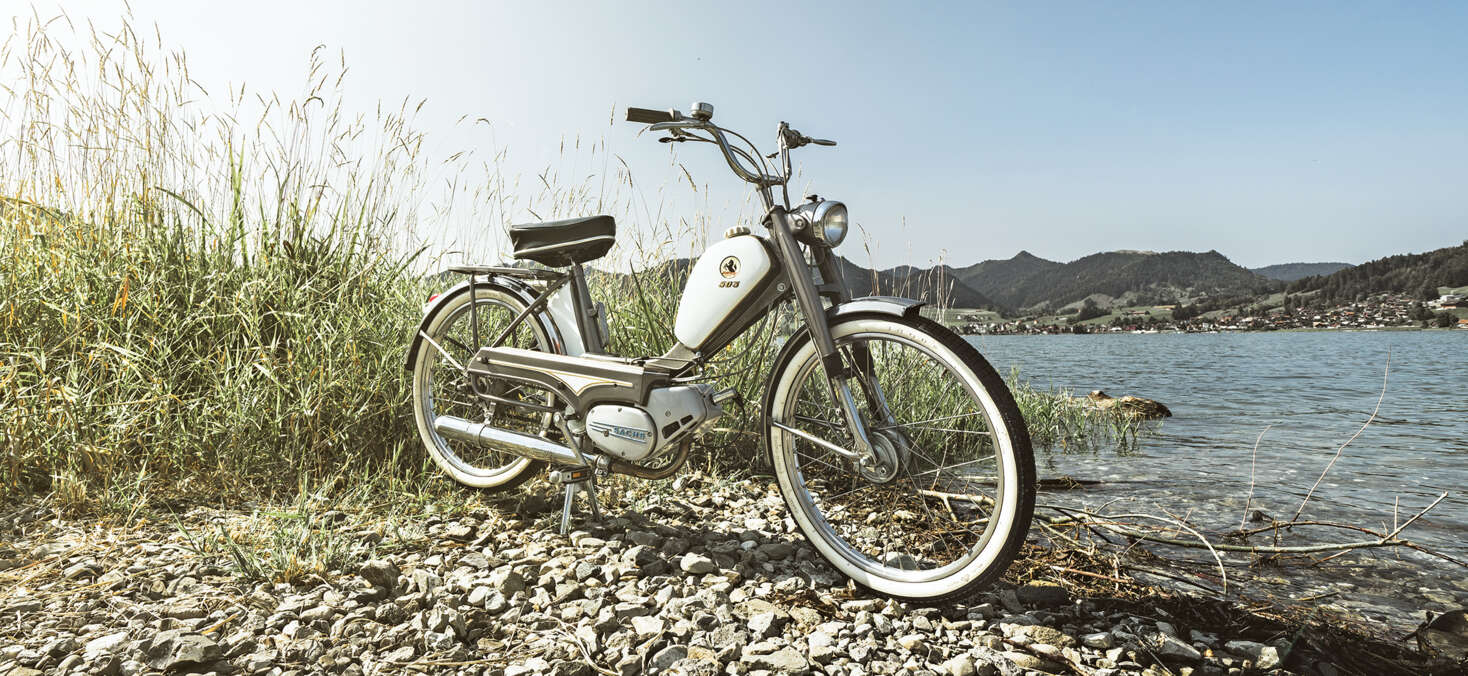
The Ponys are still there!
Although a small moped manufacturer like Amsler could not and cannot completely do without suppliers from abroad when building its mopeds, Amsler mopeds still stand for the proverbial Swiss quality. To this day, no cheap parts from the Far East are used. As already mentioned, the 503 engine of the mopeds came from Sachs in Schweinfurt and numerous add-on parts and speedometers came from the Austrian vehicle manufacturer KTM. For a while, the Cross and GTX motorbikes were even completely assembled in the KTM factories in Austria. However, the assembly of the two-wheelers now takes place entirely in Feuerthalen again and many of the former co-operation partners are long gone or have given up the moped division. Only in Feuerthalen are mopeds still assembled. The supposedly small Swiss moped manufacturer obviously has the staying power and is keeping a wonderful piece of Swiss history alive.
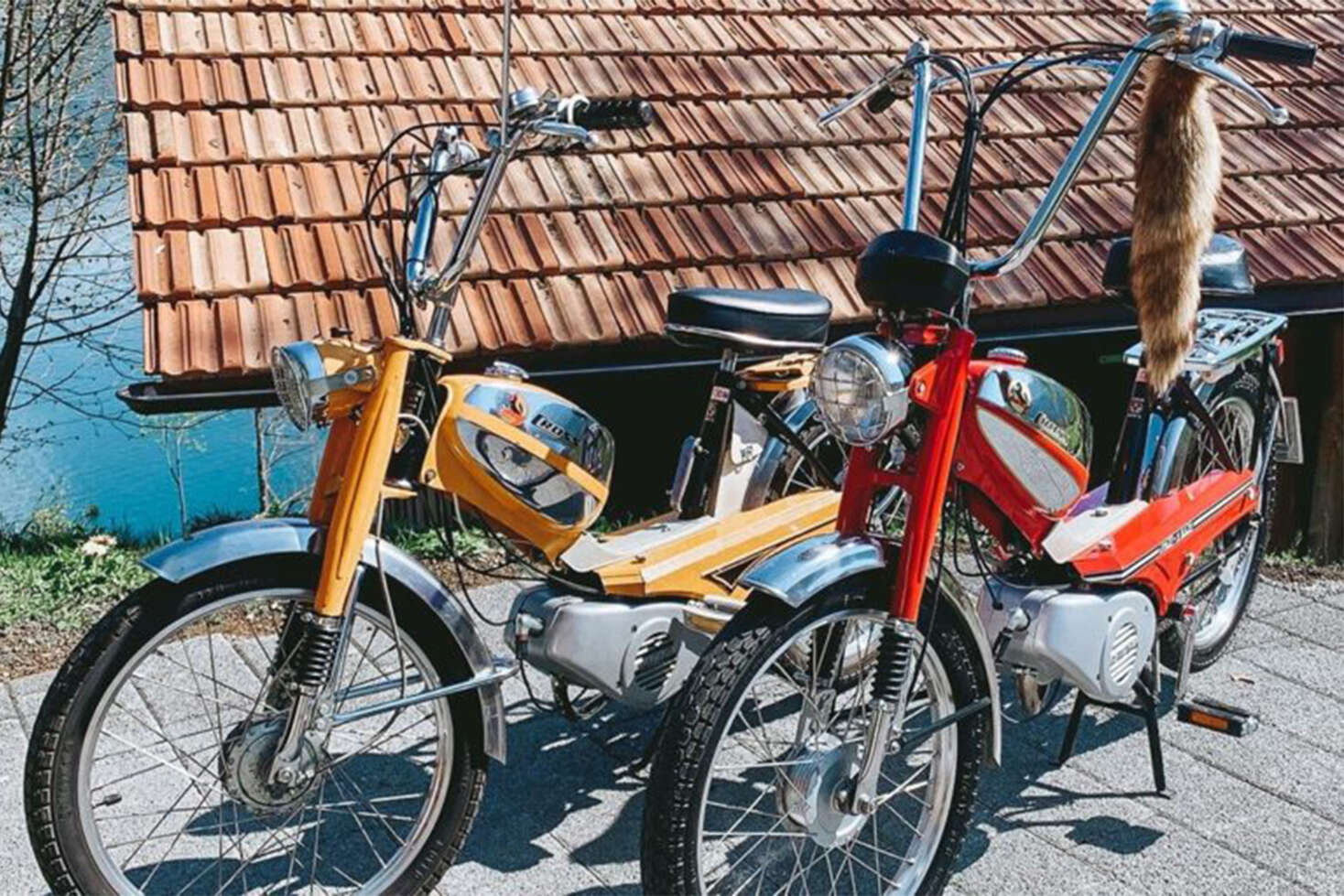
Popular PONY themes
